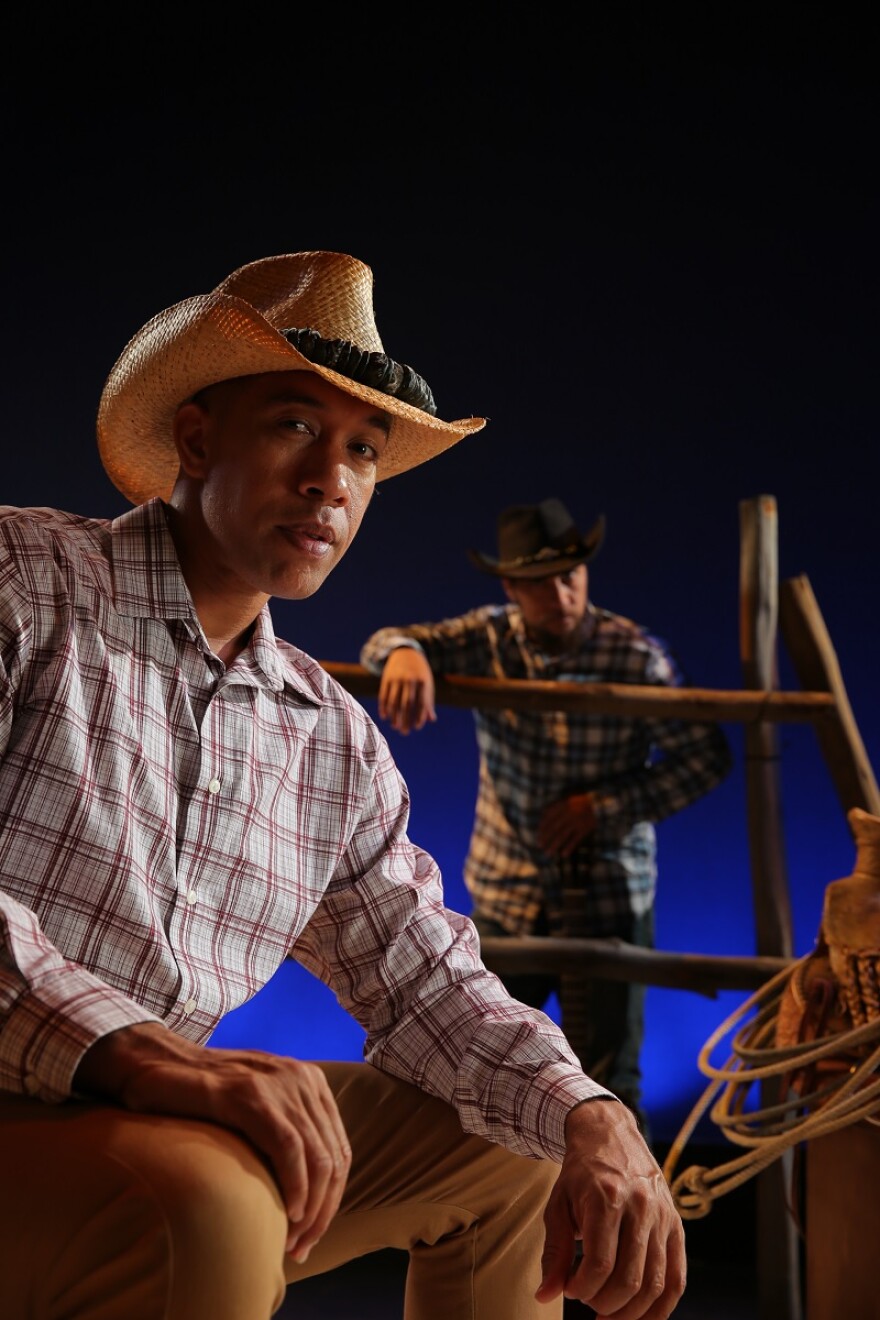Hawai‘i’s history with cattle started in 1793, when Captain George Vancouver gave King Kamehameha six cows and a bull. With a kapu protecting them, wild cattle became a nuisance by 1850, so the kapu was lifted and Spanish vaqueros were brought in to manage the animals. HPR’s Noe Tanigawa reports a new Honolulu Theatre for Youth play explores the story of Hawaiian cowboys.

Honolulu Theatre for Youth presents only two more performances of PANIOLO Stories and Songs from the Hawaiian Cowboy. This Saturday at 11am is HTY’s Every Family Pay-What-You-Can performance with sign language. The final performance is set for 4pm Saturday, November 17, 2018.
Performances are at Tenney Theatre on the grounds of The Cathedral of St. Andrew. It is ideal for ages 7 and up. Single tickets are $20 for adults, $10 for youth (18 and under) and $15 for seniors (over 60). For more information, to receive a season brochure, order tickets to a show or learn more about HTY's educational programming call 839-9885. Tickets may also be ordered online at www.htyweb.org.
History was made in August 1908 at the Cheyenne Rodeo, when Ikua Purdy won the World Steer Roping Championship in Wyoming. He did it by roping, throwing, and tying the steer in 56 seconds. The song, "Waiomina (Wyoming)," tells all about it.
"Paniolo were Hawaiians who were able to continue to connect with the ‘?ina in a changing world," says Moses Goods, who wrote and stars in a new Honolulu Theatre for Youth production titled, Paniolo Stories and Songs from the Hawaiian Cowboy.
Goods: To be a paniolo, your life was out there on the ‘?ina, connecting with the ‘?ina, knowing every bit of the ‘?ina in the way our ancestors did. It was a way to continue to have that connection the way our ancestors did.
On August 22, 1908, the Cheyenne Daily Leader’s front page reported:

ROPERS FROM HAWAII CAUSE SENSATION
Two brown Kanakas from Hawaii provided the big sensation at Frontier Park yesterday. Their performance took the breath away from the American cowboys.
Spectators were wowed by with their vaquero inspired chaps and lei adorning their cowboy hats.
Goods: As tough as these paniolo were, they were rugged Hawaiians that lived out there in the wild and spent time under the stars---As tough as they were, they always took time to connect with the beauty around them.
Goods: With paniolo, not many people know that on the ranch, the main language spoken was Hawaiian.
Goods: Paniolo always wore lei. The men on these horses could go to these remote areas in the mountains and pick flowers and vines and plants you couldn’t normally get to. So they would go to those places and get these beautiful flowers and make lei and wear them. They always took time to connect with the beauty around them even though they were these tough rugged men.
Check the headline of the Cheyenne Daily Leader, August 23, 1908:
WYOMING LOSES BOTH CHAMPIONSHIP TITLES
Ikua Purdy of Hawaii New Steer Roping Champion and Dick Stanley of Oregon New Broncho Busting Champion.
Purdy placed first with a time of 1 minute 6 seconds [Webmaster's note: One source indicates a time of 56 seconds.], beating Hugh Clark, the 1904 bronco breaking champion. Ka`aua placed third and Low sixth. Prior to his death Purdy (1873-1945) served for twenty-four years as foreman of the Ulupalakua Ranch in Hawaii. He was inducted into the Rodeo Cowboy Hall of Fame in 1999.
These three Hawaiians, Ikua Purdy, Archie Ka`aua, and Jack Low, made an incredible sensation, despite the fact that Ka'aua had lost a hand years before in a roping accident and Low suffered an asthma attack during his heat. Word is that Eban "Rawhide Ben" Low, owner and manager of Pu`uwa`awa`a Ranch on the Big Island, attended Wyoming’s Frontier Days in 1907. One look convinced him, his ranch hands could do better than the continental cowboys. Low paid the steamer and rail fare for the three paniolos, including his brother Jack, to test their skill.
Hawai‘i’s ranches today need to diversify to stay afloat. Goods says many develop tourist attractions—providing very different sorts of jobs. Being a paniolo was never easy, but it had immense satisfactions, many of which were captured in song.
On this report, we heard Na Palapalai doing Waiomina, Willie K singing Hawaiian Cowboy and Hui Ohana doing Ulupalakua.




